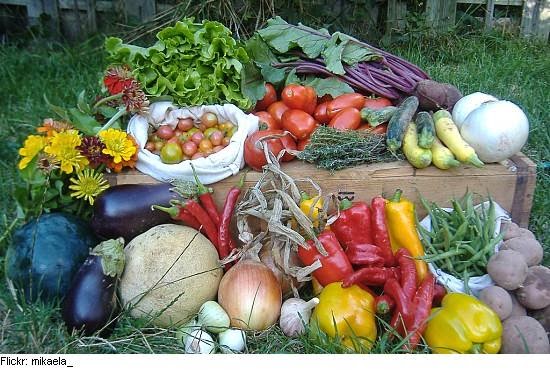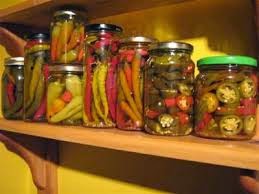In the short to medium term we consider the natural next step to focus on the permaculture principal of people care and we will attempt to get more people involved with our project. We have identified areas that we need help with and areas that we may be able to generate a small revenue stream to help with the overall project.
Volunteering Opportunities - borrowing from the principles of WWOOF (World Wide Opportunities On Organic Farms), we want to encourage people who want to experience and learn about living sustainably on a small holding to come and help. Our project has no end point and will continuously be evolving per the dictates of the natural ecosystem we inhabit, so ANYTIME is a good time for volunteers to help out. We have to date, only really accommodated a few friends as volunteers, but the experience illustrated very quickly how much more can be achieved with some willing workers!
We have a plethora of projects that we would like to carry out, but with the limited resources at our disposal, two full-time adults, one part-time adult, two children under four, two goats, seven chickens, one dog, one cat, we must prioritise them in order of importance and need. For example, as evidenced by previous postings most of the 15-acres was separated into fields for grazing live stock and the legacy of this is barb-wire... lots of it. We hate barb-wire, a cheap, inhumane and damaging fencing substitute which isn't just aesthetically unpleasant but also hurts whatever comes in contact with it, human and non-human alike! But, we have to judge whether the time invested in removing it is worthwhile now or should it be put down as a later project?
This list is by no means exhaustive but illustrates some of the projects that we would like to carry out, with some help:
Re-fence the orchard
Remove barbwire
Plant 3 tree-bogs
Plant more hedges
Dig a walipini
Dig more beds
Construct a large polytunnel
Construct some field shelters
Construct platforms to receive both Yurt and bell tents
Make some oak shingles
Re-roof the bread oven
Re-roof the barn
Pull and bundle bracken for thatching
Thatch the pentagon
Build another rocket stove and rocket oven
Construct a deck
Build a steambox for wood bending
Build a couple of outdoor showers
Build an outdoor hot-tub
Construct bird-boxes
Construct a couple of woodland bivouacs
And all of these ideas are on top of the regular seasonal maintenance of a small holding. Maintaining both annual and perennial beds, planting, cultivating and storing produce. Feeding, interacting with and collecting any produce from our livestock (even though limited right now). Selecting, felling, cutting, splitting and storing wood our majority energy source.
Green Camping -in order to accommodate our volunteers and perhaps to generate a little income from non-volunteers we would like to develop and offer opportunities to "green camp" or "glamping", to use contemporary vernacular! We have a number of locations around the fifteen acres that offer differing views, experience different sounds and offer some quiet retreat. keep reading this blog as we develop those sites, we may even poll you for which locations are the most favourable! But we do need to prepare these sites to provide facilities for those staying with us, which of course requires us to complete some of the above-mentioned projects. We are not deterred by these challenges, we take inspiration from some really quite beautiful sites that we have seen, but would like ours to be individual and unique to La Fieffe.
 |
| https://www.coolcamping.co.uk/campsites/uk/wales/mid-wales/powys/1004-wye-glamping |
 |
| http://www.rocombevalleyretreat.co.uk/rocombe_valley_retreat_glamping_yurts/accomodation_on_the_farm.html |
 |
| https://www.coolcamping.co.uk/campsites/luxury |
Permaculture Tasters - both Jess and I hold a Permaculture Design Certificate and along with my brother, Shands, we use these principles to help us plan and develop La Fieffe. We aren't prepared right now to offer full P.D.C. courses but we would certainly welcome those wanting an introduction to Permaculture to visit. We are all passionate about permaculture, organic growing, biodynamic gardening and the future of these practices in a world that is experiencing a steep decline in soil fertility.

Woodland Management -based on the principles espoused by the The Conservation Volunteers and the writings of Ben Law, we are trying to manage a small acre and a half of woodland and numerous hedgerows in a sustainable manner. Our primary focus at this early stage is an energy supply, but this will, over time spread to include more complex woodland management and use. We also, as far as possible, try to manage this with manual hand tools only, so we depend upon axes, cross-cut saws, billhooks, bowsaws and splitting mauls to process our wood.
 |
| These aren't actually our tools, ours are better :~) |
The longer we carry out this management, the more confident we become, the more challenging projects we undertake. Eventually we would hope to be able to manufacture our own structures, whether it is a simple tipi or a more complex yurt.


Community Supported Agriculture - in the UK, CSA's are popular as farmers or small-holders for instance can receive a more stable and secure income and
closer connection with their community, and consumers can benefit by
eating fresh healthy food, feeling more connected to the land where
their food is grown and learning new skills. Consumers benefit from receiving fresh food from a known source;
the environmental benefits of fewer 'food miles', less packaging and ecologically sensitive farming with improved animal welfare
is also achieved; for the small-holder (us) we receive a fair return on products that we supply direct to the community, we also have a closer involvement with the local community and hopefully receive help with labour (voluntarism)... hopefully!
 |
| http://sustainableag.ca.uky.edu/csafaqs/ |
 |
| http://www.diseaseproof.com/archives/cat-community-supported-agriculture.html |
Taken a step further we can encourage our community to set up their own niches so that La Fieffe doesn't produce everything, but one neighbour who has south facing valley maybe grows tomatoes and peppers and another neighbour with a large field grows grains for making flour... that's the essence of community self-reliance, encouraging, supporting and building resilience and a collective pool of shared resources.



















